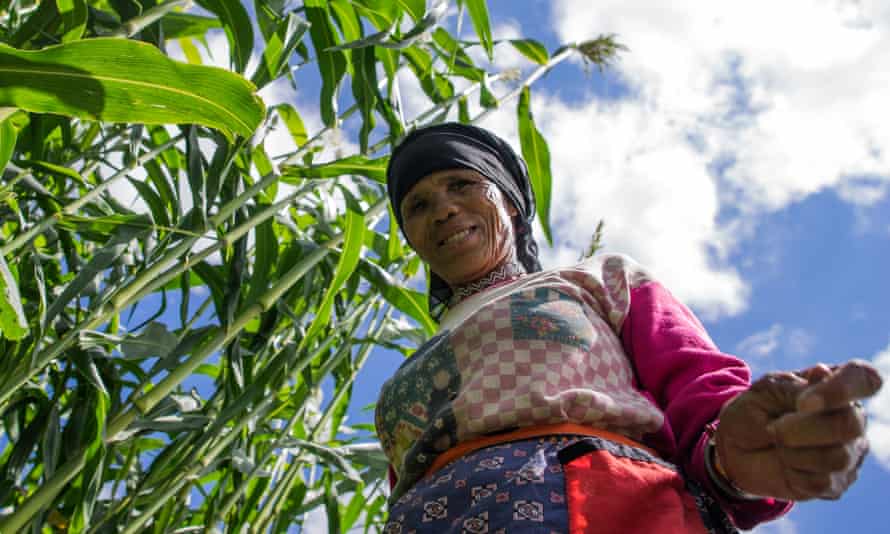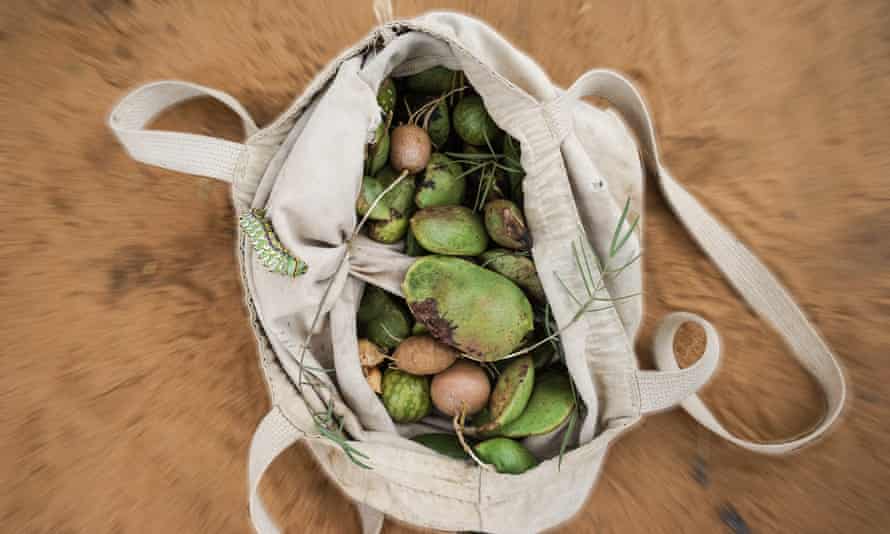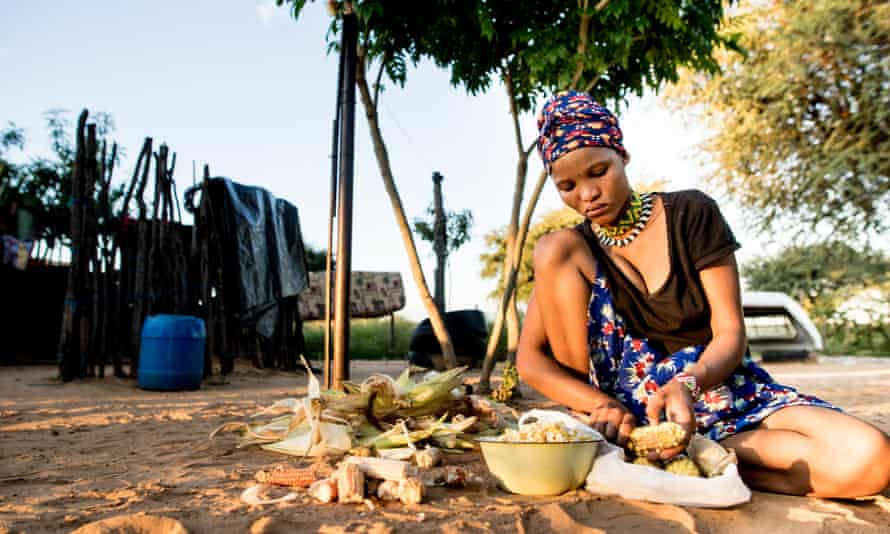They Had Less Time to Create Art After the Neolithic Agricultural Revolution
Virtually people regard bureaucracy in man societies every bit inevitable, a natural part of who nosotros are. Notwithstanding this conventionalities contradicts much of the 200,000-year history of Human being sapiens.
In fact, our ancestors take for the almost part been "fiercely egalitarian", intolerant of any course of inequality. While hunter-gatherers accepted that people had different skills, abilities and attributes, they aggressively rejected efforts to institutionalise them into any course of hierarchy.
So what happened to cause such a profound shift in the human psyche away from egalitarianism? The remainder of archaeological, anthropological and genomic data suggests the respond lies in the agricultural revolution, which began roughly 10,000 years ago.
The extraordinary productivity of modernistic farming techniques belies merely how precarious life was for almost farmers from the earliest days of the Neolithic revolution right upward until this century (in the instance of subsistence farmers in the world'southward poorer countries). Both hunter-gatherers and early farmers were susceptible to short-term food shortages and occasional famines – but it was the farming communities who were much more probable to suffer severe, recurrent and catastrophic famines.
Hunting and gathering was a low-risk fashion of making a living. Ju/'hoansi hunter-gatherers in Namibia traditionally fabricated utilize of 125 different edible plant species, each of which had a slightly different seasonal cycle, varied in its response to different atmospheric condition weather, and occupied a specific environmental niche. When the conditions proved unsuitable for 1 set of species it was likely to do good another, vastly reducing the run a risk of famine.
Equally a result, hunter-gatherers considered their environments to be eternally provident, and only ever worked to meet their immediate needs. They never sought to create surpluses nor over-exploited any central resources. Confidence in the sustainability of their environments was unyielding.

In dissimilarity, Neolithic farmers assumed total responsibility for "making" their environments provident. They depended on a handful of highly sensitive crops or livestock species, which meant any seasonal anomaly such equally drought or livestock illness could cause chaos.
And indeed, the expansion of agriculture across the globe was punctuated by catastrophic societal collapses. Genomic research on the history of European populations points to a series of sharp declines that coincided first with the Neolithic expansion through central Europe around seven,500 years agone, and so with their spread into north-western Europe about six,000 years ago.
However, when the stars were in alignment – atmospheric condition favourable, pests subdued, soils still packed with nutrients – agronomics was very much more productive than hunting and gathering. This enabled farming populations to grow far more than chop-chop than hunter-gatherers, and sustain these growing populations over much less land.
Only successful Neolithic farmers were still tormented by fears of drought, bane, pests, frost and dearth. In time, this profound shift in the style societies regarded scarcity also induced fears about raids, wars, strangers – and eventually, taxes and tyrants.

Non that early on farmers considered themselves helpless. If they did things correct, they could minimise the risks that fed their fears. This meant pleasing capricious gods in the conduct of their 24-hour interval-to-24-hour interval lives – but above all, it placed a premium on working hard and creating surpluses.
Where hunter-gatherers saw themselves simply as part of an inherently productive surround, farmers regarded their surroundings as something to manipulate, tame and control. But as whatsoever farmer will tell you lot, bending an environment to your volition requires a lot of work. The productivity of a patch of state is directly proportional to the amount of energy you lot put into it.
This principle that hard work is a virtue, and its corollary that individual wealth is a reflection of merit, is mayhap the most obvious of the agricultural revolution's many social, economic and cultural legacies.
From farming to state of war
The acceptance of the link betwixt hard work and prosperity played a profound function in reshaping human destiny. In particular, the ability to both generate and command the distribution of surpluses became a path to power and influence. This laid the foundations for all the primal elements of our gimmicky economies, and cemented our preoccupation with growth, productivity and merchandise.
Regular surpluses enabled a much greater degree of role differentiation within farming societies, creating infinite for less immediately productive roles. Initially these would accept been agriculture-related (toolmakers, builders and butchers), but over time new roles emerged: priests to pray for practiced rains; fighters to protect farmers from wild animals and rivals; politicians to transform economic power into social uppercase.
A recent research paper examining inequality in early Neolithic societies confirms what early-20th century anthropologists already knew, on the basis of comparative studies of farming societies: that the greater the surpluses a society produced, the greater the levels of inequality in that society.
The new inquiry maps the relative sizes of people'southward homes in 63 Neolithic societies between 9000BC and 1500 Ad. It finds a clear correlation between levels of material inequality – based on the size of household dwellings in each community – and the apply of draught animals, which enabled people to put far greater free energy into their fields.
Of form, even the near hard-working early Neolithic farmers learnt to their toll that the same patch of soil could not keep producing abundant harvests year after year. Their need to sustain ever-larger populations also gear up in motion a bike of geographic expansion by means of conquest and war.

Thanks to studies of observed interactions betwixt 20th-century hunter-gatherers such equally the Ju/'hoansi and their farming neighbours in Africa, India, the Americas and south-east Asia, we now know that agriculture spread through Europe by the aggressive expansion of farming populations, at the expense of established hunter-assemble populations.
The agricultural revolution also transformed the way humans think about fourth dimension. Seeds are planted in leap to be harvested in fall; fields are left fallow so they may exist productive the post-obit year. Thus farming-based societies created economies of hope and aspiration, in which we focus nigh unerringly on the futurity, and where the fruits of our labour are delayed.
Only it'southward not only our work that is future-oriented: so much of modern life is a tangle of social goals and often-impossible expectations shaping everything from our love-lives to our health. Hunter-gatherers, by contrast, only worked to meet their immediate needs; they neither held themselves hostage to future aspirations, nor claimed privilege on the basis of past achievements.
Understanding how the agricultural revolution transformed human societies was one time no more than a question of intellectual marvel. Now, though, it has taken on a more practical and urgent aspect. Many of the challenges created past the agronomical revolution, such as the problem of scarcity, take largely been solved by engineering – nevertheless our preoccupation with hard piece of work and unrestrained economic growth remains undimmed. As environmental economists remind us, this obsession risks cannibalising our – and many other species' – futures.
So it is worth recognising that our current social, political and economic models are not an inevitable consequence of homo nature, just a product of our (contempo) history. That knowledge could free us to be more imaginative in changing the mode nosotros relate to our environments, and ane another. Having spent 95% of Homo sapiens' history hunting and gathering, there is surely a little of the hunter-gatherer psyche left in all of us.
- Affluence Without Abundance by James Suzman (Bloomsbury Publishing) is available from the Guardian Bookshop at a saving of xv% on RRP
- If you have experiences relating to this article that you'd similar to share, please email united states at inequality.projection@ theguardian.com
millertatifechand.blogspot.com
Source: https://www.theguardian.com/inequality/2017/dec/05/how-neolithic-farming-sowed-the-seeds-of-modern-inequality-10000-years-ago
0 Response to "They Had Less Time to Create Art After the Neolithic Agricultural Revolution"
Post a Comment